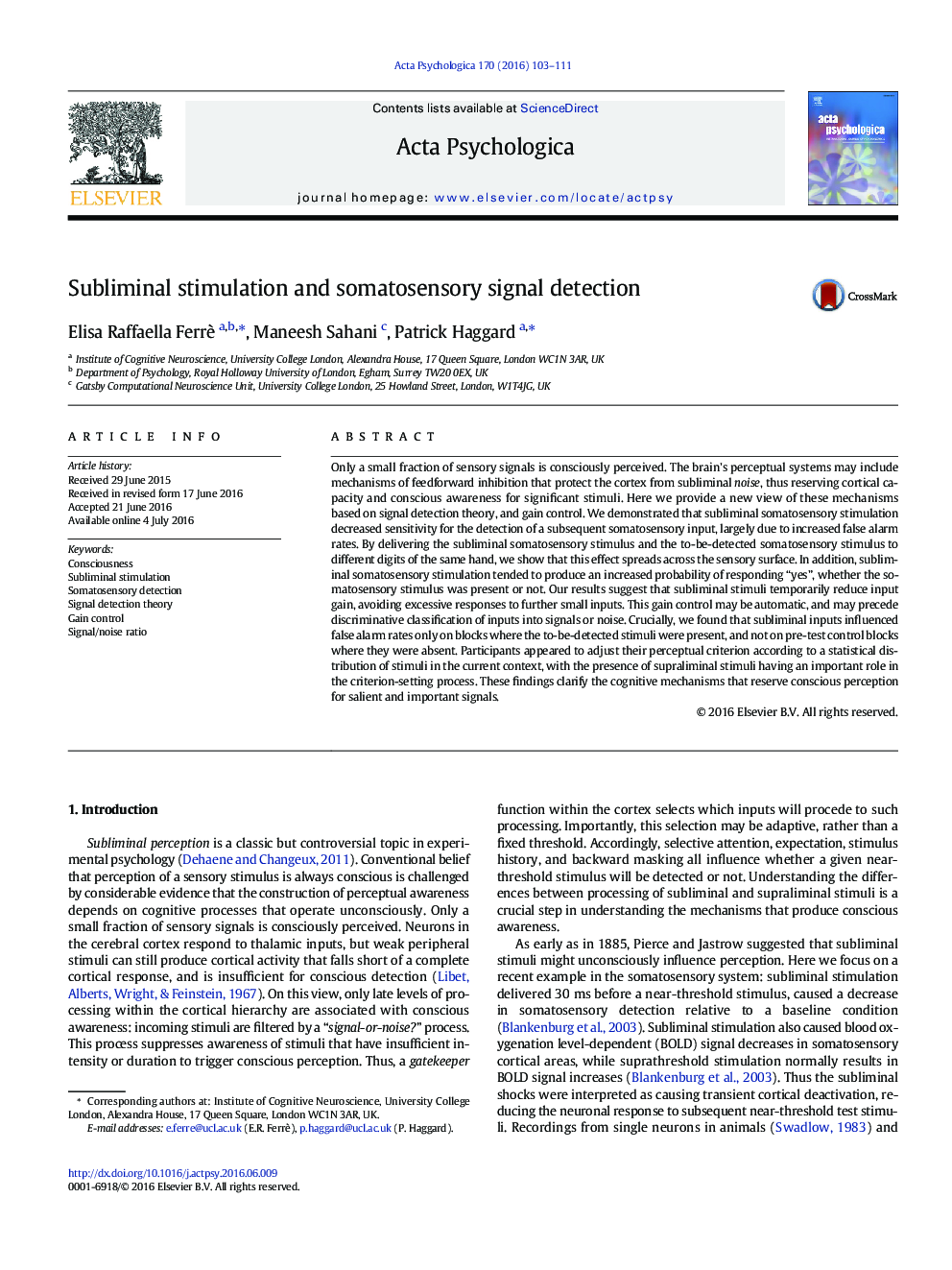| کد مقاله | کد نشریه | سال انتشار | مقاله انگلیسی | نسخه تمام متن |
|---|---|---|---|---|
| 7276973 | 1473588 | 2016 | 9 صفحه PDF | دانلود رایگان |
عنوان انگلیسی مقاله ISI
Subliminal stimulation and somatosensory signal detection
ترجمه فارسی عنوان
تحریک غوطه و تشخیص سیگنال حساس
دانلود مقاله + سفارش ترجمه
دانلود مقاله ISI انگلیسی
رایگان برای ایرانیان
کلمات کلیدی
موضوعات مرتبط
علوم زیستی و بیوفناوری
علم عصب شناسی
علوم اعصاب شناختی
چکیده انگلیسی
Only a small fraction of sensory signals is consciously perceived. The brain's perceptual systems may include mechanisms of feedforward inhibition that protect the cortex from subliminal noise, thus reserving cortical capacity and conscious awareness for significant stimuli. Here we provide a new view of these mechanisms based on signal detection theory, and gain control. We demonstrated that subliminal somatosensory stimulation decreased sensitivity for the detection of a subsequent somatosensory input, largely due to increased false alarm rates. By delivering the subliminal somatosensory stimulus and the to-be-detected somatosensory stimulus to different digits of the same hand, we show that this effect spreads across the sensory surface. In addition, subliminal somatosensory stimulation tended to produce an increased probability of responding “yes”, whether the somatosensory stimulus was present or not. Our results suggest that subliminal stimuli temporarily reduce input gain, avoiding excessive responses to further small inputs. This gain control may be automatic, and may precede discriminative classification of inputs into signals or noise. Crucially, we found that subliminal inputs influenced false alarm rates only on blocks where the to-be-detected stimuli were present, and not on pre-test control blocks where they were absent. Participants appeared to adjust their perceptual criterion according to a statistical distribution of stimuli in the current context, with the presence of supraliminal stimuli having an important role in the criterion-setting process. These findings clarify the cognitive mechanisms that reserve conscious perception for salient and important signals.
ناشر
Database: Elsevier - ScienceDirect (ساینس دایرکت)
Journal: Acta Psychologica - Volume 170, October 2016, Pages 103-111
Journal: Acta Psychologica - Volume 170, October 2016, Pages 103-111
نویسندگان
Elisa Raffaella Ferrè, Maneesh Sahani, Patrick Haggard,
